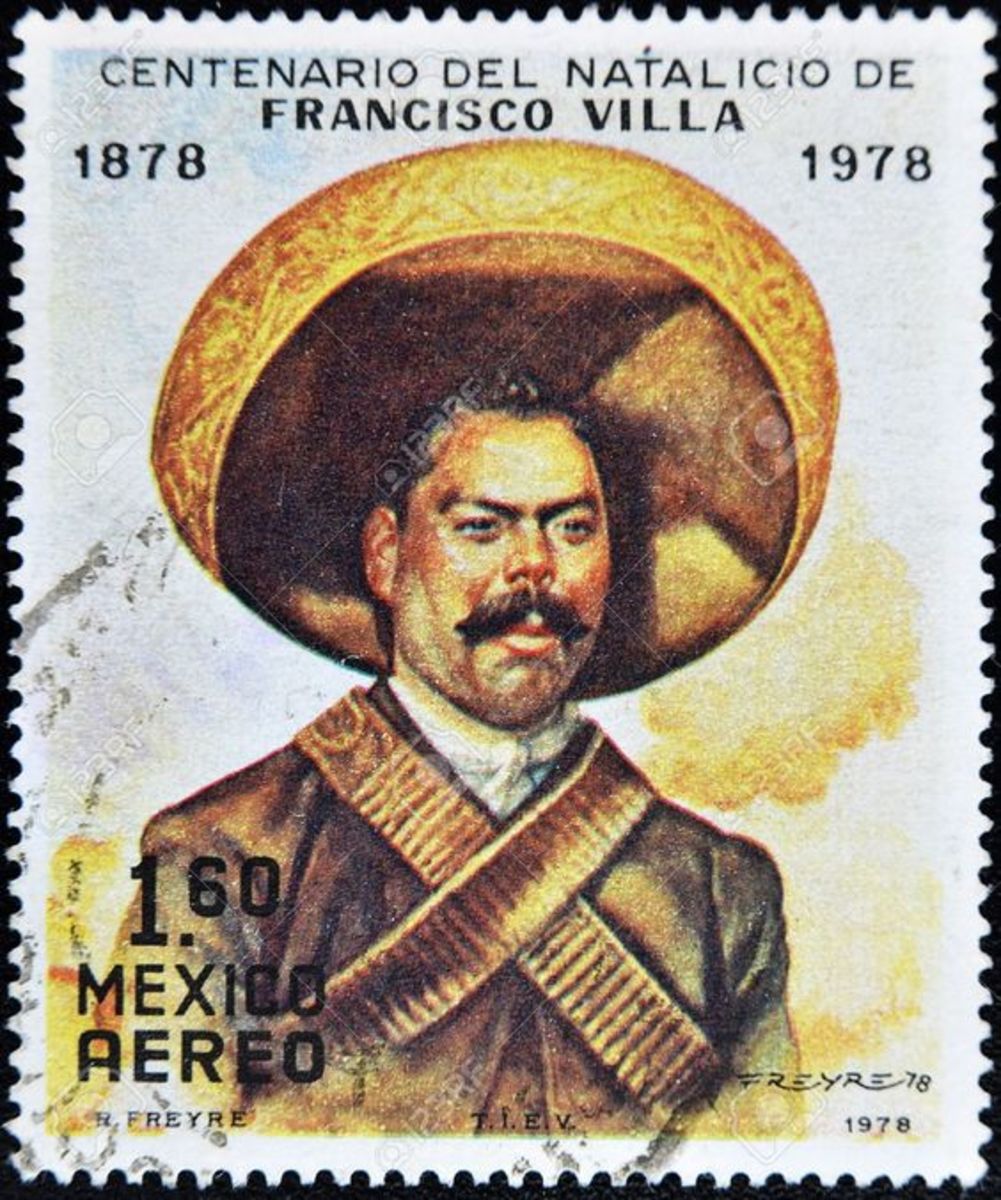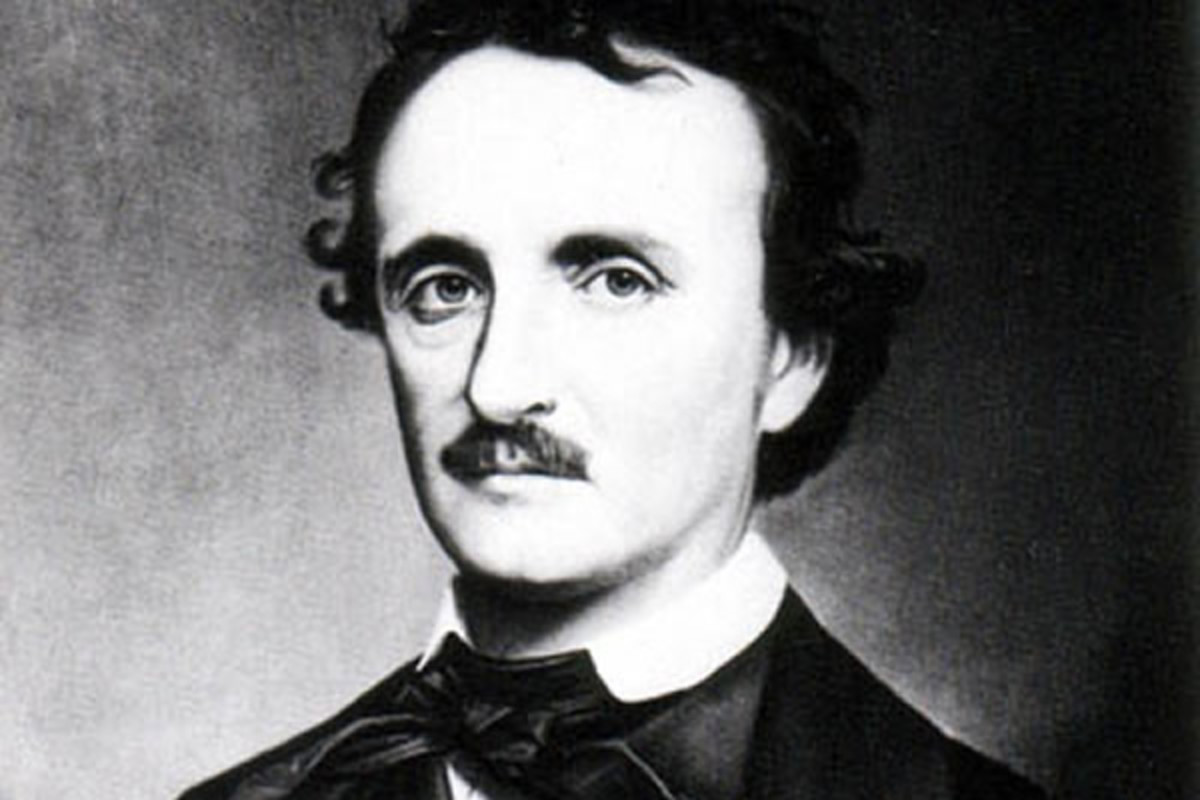- HubPages»
- Books, Literature, and Writing»
- Commercial & Creative Writing»
- Creative Writing
Melvin Haggins, Part V: Rebellion and Death
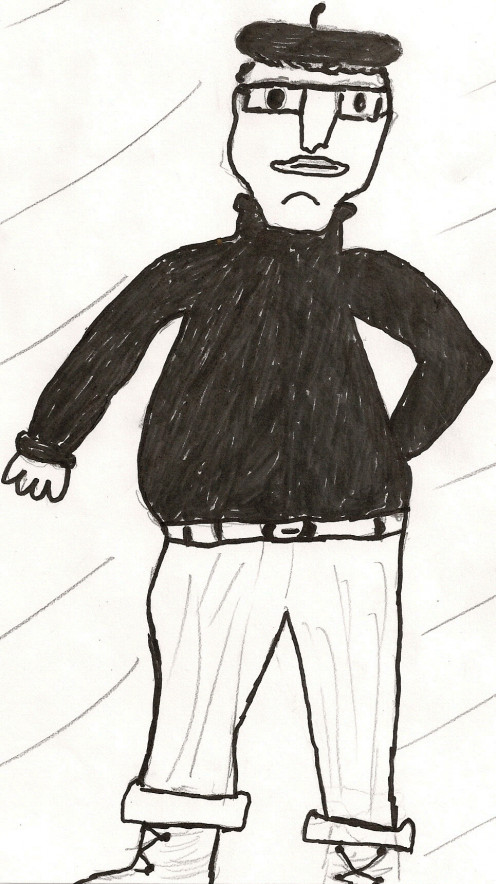
Melvin Haggins: Installments 1-4
Note from Author
Good to see you again and welcome to the final installment of the life of Melvin. If you've read the first 4 parts of the series, I hope you have enjoyed yourself so far, and thanks for the support. If you're dropping by for the first time, I hope you enjoy.
As mentioned before, the life of Melvin is a fictitious work styled in a faux-journalism. The characters are a product of the author's mind, but the settings are real places for the most part.
In the final chapter of Melvin Haggins, he continues to pursue his dreams of becoming an internationally acclaimed author.
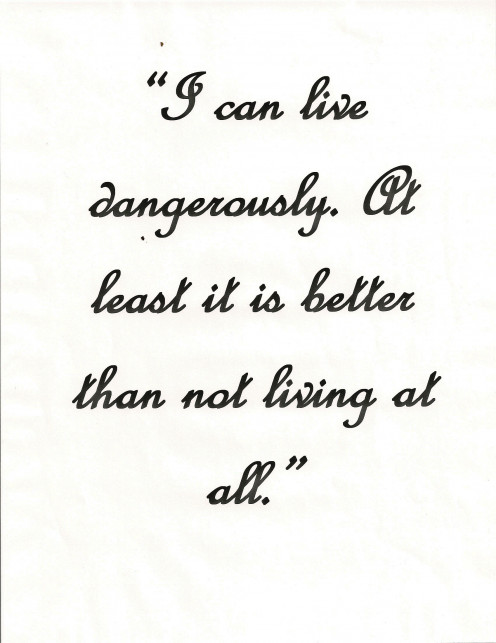
Melvin: Life on the Razor's Edge?
Deep in the doldrums of depression over the death of both his parents and his lack of success as a writer, it was the support of Melvin’s friends that helped him to rise again and reinvent himself.
In 1983, towards the end of final semester at Hydro Public Schools, Melvin not only again proclaimed the title of internationally acclaimed writer to be, but also literary rebel. Feeling one could not be a rebel and an English teacher, and also being of the mind that his teaching career only stood in the way of his success, Melvin decided this year would be his last.
In his resignation letter from Hydro Public Schools he explained, “I choose to leave this position so I can devote all my time to becoming an internationally acclaimed writer and literary rebel.” He ends the letter by writing what would become his primary battle cry for the remainder of his life. “I can live dangerously. At least it’s better than not living at all.”
Thus would begin the final and most productive period of Melvin’s writing career. No, there would be no publications, acclaim, or any real rebellion, but he would write more of the sort of things he wrote than at any other period in his life.
A great source for any writer
Strunk and White, an excellent book for improving writing
Form and Style of the Rebel Haggins
There was a slight shift in Melvin’s attitude when he decided to, as he puts it, “be out there on a limb,” forsaking the norm of regular employment and a salary, but if we’re honest, this newfound “rebellion” and his willingness to live dangerously is a bit of a stretch.
With Melvin’s parents having passed, he inherited several million dollars from what they had saved from hard work and royalties. In addition, he continued to receive large sums of money every month from gas-wells, matured CDs, and savings bonds.
Of those few having studied the life of Melvin Haggins, most agree that his slogan: “I can live dangerously. At least it’s better than not living at all,” is the magnum opus of his litany of work, and this may be true. The two sentences almost sound like something a qualified author would write, but what is often missed is that it is also an inaccurate description of his situation.
Stylistically Melvin’s reinvention manifested itself in two ways, resulting in a marginal improvement. First, he decided that he could occasionally use contractions, like don’t, won’t, shouldn’t, etc. For whatever strange reason, probably due to some well-meaning, misguided instructor, Melvin had in youth been persuaded contractions were the Devil’s work.
Secondly, Melvin had given up the idea that characters with bad habits or intentions always had to fail. These two freedoms were the literary sums total of Melvin the rebel.
The work below exemplifies Melvin’s ability in later years.
Two Rebels
Benny and Vin were in need of alcohol, and they needed money. The two rebels decided to rob a liquor store. Benny said, “Looks like we’re needing more alcohol.”
Vin responded, “I’m out of cash.” He pulled out his pockets so Benny could see he had no cash.
“Let’s rob a liquor store. That way we can have money and booze,” Benny said cleverly.
Vin retorted, “Yes. That is what we will do. We’re clever rebels and will win acclaim.”
Benny and Vin sat outside the liquor store smoking cigarettes. “I’m high from these cigarettes because I am addicted, but I’m also addicted to alcohol and want more!” Vin said in a rebel tone, slamming his fist on the dashboard.
Benny responded, “I’m addicted to cigarettes and alcohol as well. It will also be nice to have money.”
“Woooweeee!” Vin screeched, “We can buy more cigarettes with the money we steal.”
Both the rebels put on masks, because they were experienced at this sort of thing and knew to bring and wear masks. They pulled out their guns as they ran through the liquor store entrance. “This is a holdup!” Benny yelled. Vin grabbed alcohol from the shelf and Benny took the money. There was a policeman when they got outside, so they shot him and he died.
The two rebels road into the sunset smoking cigarettes and drinking alcohol. They went on to win acclaim for being so different and bad.
Rebels Wear Turtlenecks!
Outwardly Melvin also made some changes to fit his rebel motif. Foremost, his clothing selection changed. Before Melvin’s garb had always been that of the masses—nondescript, whatever people wore, whatever was normal. But rebellion spawned metamorphosis into something that was nothing if not out of place.
A black beret, black long-sleeve turtleneck shirt, tucked neatly into a leather-belted waistband and blue jeans, black army surplus boots, and the accompaniment of a brown leather jacket in winter months, this, in Melvin’s mind, was the dress of the ultimate literary rebel and would remain his suit of arms in the battle against imaginary, repressive forces for the remainder of his life.
It would seem Melvin’s antithesis of the ultimate modern-day, far-out, gnarly, and rebellious was in fact a simple reinvention of the stereotypical clothing selection of the 1950’s beatnik.
Forlorn Writer’s Club Member Stephanie Winter recounts, “We all laughed. We thought it was a joke or Halloween had come early or something. He just kept wearing it. He was easy to spot in town. Before too long, it just became normal.”
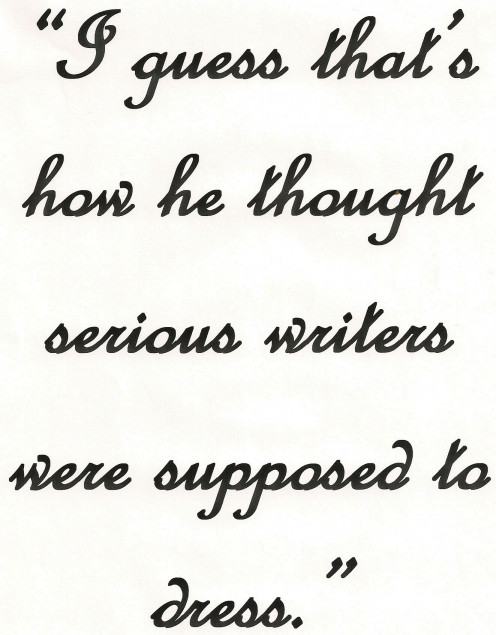
Member Hank Porter gives the following description:
“I guess that’s how he thought serious writers were supposed to dress. It was ridiculous, really. It gets to bout 110 out here in August. Here’s Melvin covered in black. I remember the perspiration just careening from his face and the smell. It wasn’t that rotten I don’t change or clean my clothes smell. Just that pure sweat smell all summer.”
In addition, Melvin would employ performance art to spice up readings. Whereas in the past he would read his works in a nasal, droning voice until they were complete, in his new persona, Melvin had decided to start adding all manner of emotional inflections.
Forlorn Member Heather McCullough articulates:
“It was a laugh-riot and for all the wrong reasons. If Melvin had had a little better sense of himself, he might could’ve made a living in comedy. He’d read these dull stories in his silly clothes, and it would be loud and forceful, not at all like Melvin.”
Member Stephanie Winter adds:
“He’d bring himself to laughter or tears, the whole range of things, and it just didn’t seem to have anything to do with what he was reading. We’d all be kinda confused and clap at the end and then try to mimic whatever emotion we guessed the story was supposed to make us feel.”
And under this emotionally misunderstood, rebel charade Melvin would write and write and write, one story after the other, none much better or worse than the one before or after and none of them very good to began with.
Artistically, Melvin’s performances, though lost to time, were probably a noteworthy spectacle, something the others could appropriately appreciate in private, but not on the merits Melvin coveted.
Opinion
Have you ever loved doing something you were just awful at?
I Like Melvin
On July 3, 2004 Melvin Haggins would attend a Forlorn Writer’s Club of Western Oklahoma meeting for the final time. Having been diagnosed with breast cancer some five years earlier, he had been fighting the good fight, had never missed a single meeting, appointment, or social commitment, and the whole time he never stopped writing.
The following Saturday a friend would drive him to OU Medical Center where he would spend the remaining three weeks of his time on earth.
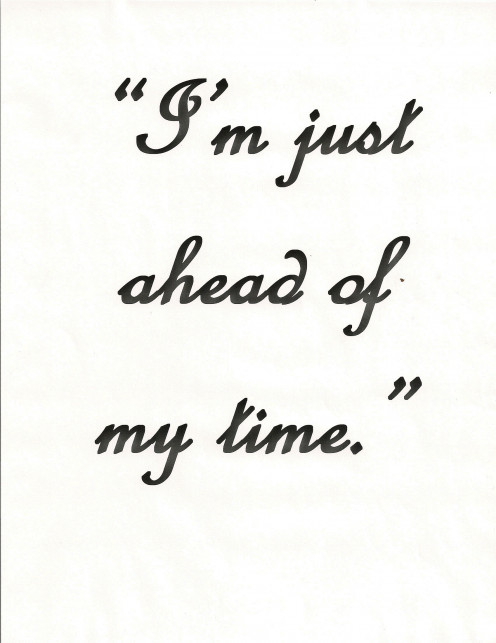
Of his illness, Forlorn Member Sarah Voss gives the following account:
“There were a few days there after the diagnosis that he wasn’t himself. I remember him saying, ‘I’ll never be published, will I?’ I told him it wasn’t for lack of effort.
A few days later he had reinvented himself again. His new thing was that the great ones were never recognized in life. ‘I’m just ahead of my time,’ he said. And that was Melvin, always finding a way to keep at it.”
On July 23, 2004 Melvin Haggins was laid to rest beside his mother and father in small cemetery in Hartshorne, Oklahoma. In attendance, most everyone Melvin had ever taken the time to get to know. It would have been wrong, after all, to not be present and on time to see a man off so well-known for his punctuality.
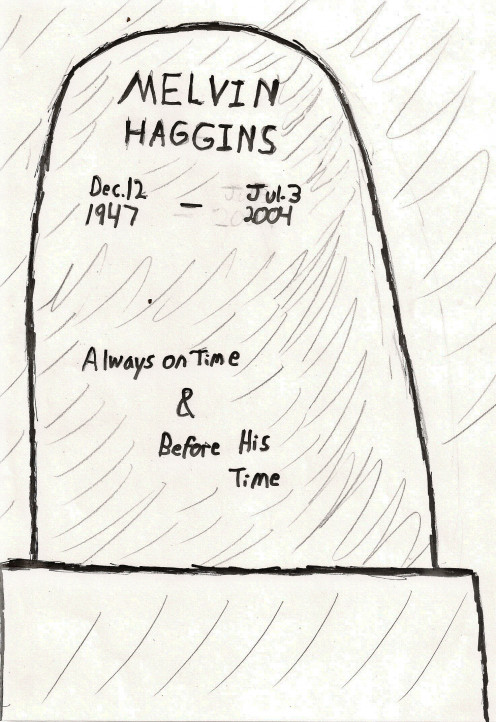
Even after his death, in many ways Melvin keeps right on fighting for a chance, waiting for the time to be right to be acclaimed for his life’s work.
In Weatherford, Oklahoma on a hill in the middle of Southwestern Oklahoma State’s humble campus is a library, as nice if not nicer than any library you will see for an institution of this size. On the front in gold lettering are the words “Melvin Haggins Memorial Library.” There, most every Friday, the Forlorn Writers Club of Western Oklahoma meets, some new faces, some old.
If one searches this library, they will find a stairwell to the basement where underneath the thousands of popular, neatly catalogued books are a few classrooms, a writing center.
And if one goes further they will find yet another stairwell to yet another, deeper basement. On the wall is a mural of a young man in a football uniform, small and soft, looking out of place. Falling from the sky into his outstretched hands is a football. This sub-basement houses the less popular books. Melvin’s works, every word from the first time he put pen to paper is bound in leather here, just waiting for the world to finally “catch up.”
When I was first given the assignment of writing about Melvin, I thought it would be good for a laugh. Having spent a portion of my time in Western Oklahoma, I had some knowledge of his exploits.
In my mind he was a tragic and conceited figure whose only real accomplishment was bribing a university to commemorate his ineptitude for all creation with a vast wealth he didn’t even earn. A failure. A nobody. A nothing.
Opinion
Do you like Melvin?
Even after having done the research, I find it highly doubtful that humanity will ever need any of Melvin’s stories in any fathomable future. I haven’t read all of his works, and I doubt any soul will ever take the time, but what I have read, put politely, is bad.
Yet, like so many, having spent these last few weeks with his specter, I find myself unable to not like, even respect Melvin. What is success, really? Most of us work hard, do this, do that to no real avail. What is it that makes us, us? Is it the awards? Is it the acclaim? We prop ourselves up and say, “I was recognized!” It keeps us going. And what does employee of the month or whatever really mean in the grand scheme of things?
Melvin didn’t need any of that. He just kept at it. It’s hard not to respect the drive. One might say Melvin’s life was a joke that he was never in on, but I just can’t come away from things not admiring his oblivious nature. Rarely a day goes by that I am not fighting or crippled by the idea that everyone is laughing at me behind my back, that my time has been a waste and misuse compared to what everybody else adds to the table. What a heaven sent blessing to not be shackled by those doubts.
Melvin’s last weeks on earth were spent in a hospital bed. While there he still wrote. I had thought surely this would be the time that it all came together, that Melvin gave us some incomparable jewel to stand the test of time.
Some incredible insight into cancer, life, death, but no, Melvin stayed classic Melvin—a period piece about a train robbery in the old west. Our two rebels are out of money, evidenced by one character showing his empty pockets. Both profess an “addiction” to the “rebel” lifestyle, and after a successful robbery, they kill the sheriff, “winning acclaim” as they “ride off into the sunset.”
In the margins of the paper are Melvin’s notes. It says, “I’ve finally got it right!”




